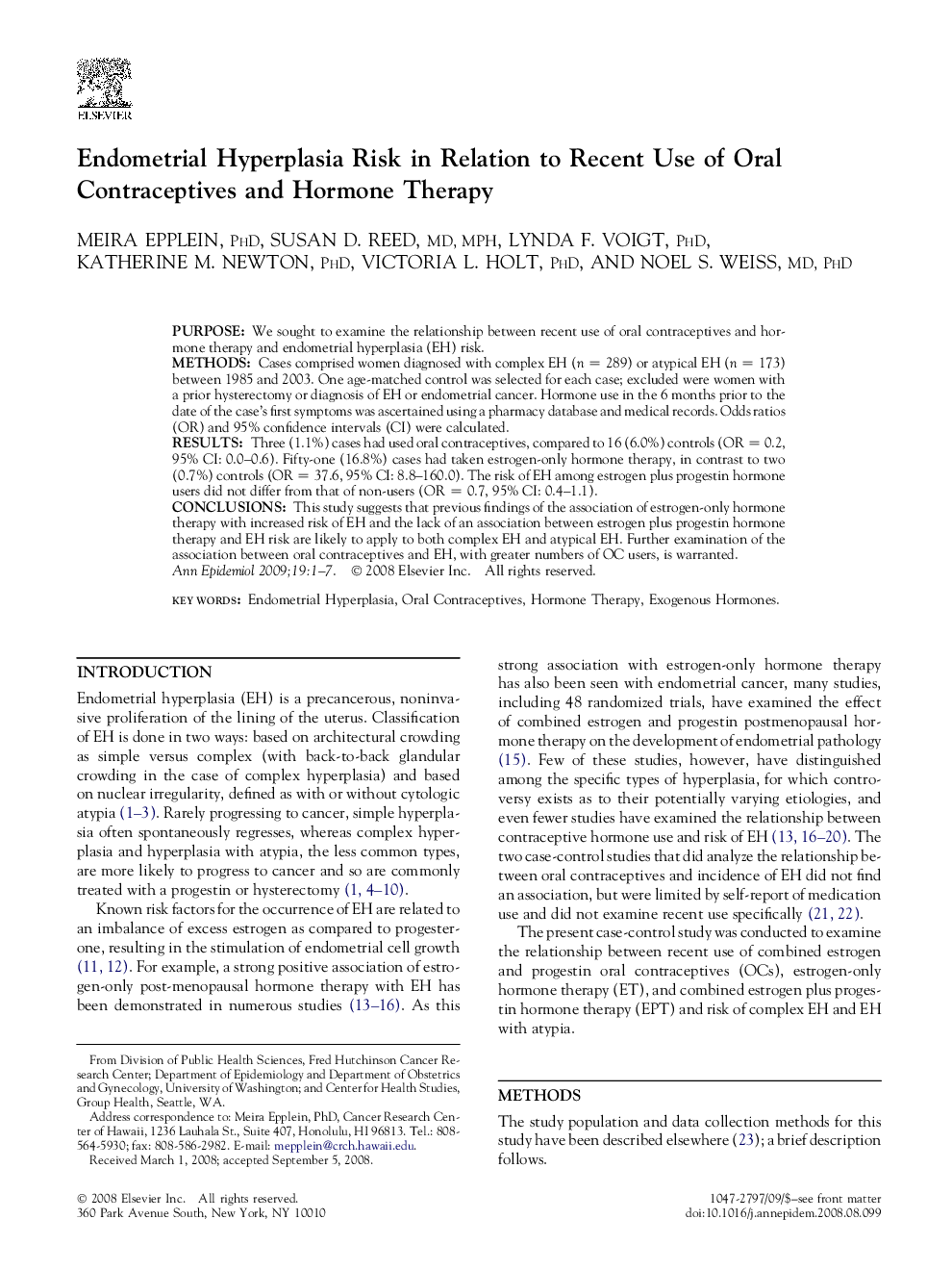| Article ID | Journal | Published Year | Pages | File Type |
|---|---|---|---|---|
| 3445051 | Annals of Epidemiology | 2009 | 7 Pages |
PurposeWe sought to examine the relationship between recent use of oral contraceptives and hormone therapy and endometrial hyperplasia (EH) risk.MethodsCases comprised women diagnosed with complex EH (n = 289) or atypical EH (n = 173) between 1985 and 2003. One age-matched control was selected for each case; excluded were women with a prior hysterectomy or diagnosis of EH or endometrial cancer. Hormone use in the 6 months prior to the date of the case's first symptoms was ascertained using a pharmacy database and medical records. Odds ratios (OR) and 95% confidence intervals (CI) were calculated.ResultsThree (1.1%) cases had used oral contraceptives, compared to 16 (6.0%) controls (OR = 0.2, 95% CI: 0.0–0.6). Fifty-one (16.8%) cases had taken estrogen-only hormone therapy, in contrast to two (0.7%) controls (OR = 37.6, 95% CI: 8.8–160.0). The risk of EH among estrogen plus progestin hormone users did not differ from that of non-users (OR = 0.7, 95% CI: 0.4–1.1).ConclusionsThis study suggests that previous findings of the association of estrogen-only hormone therapy with increased risk of EH and the lack of an association between estrogen plus progestin hormone therapy and EH risk are likely to apply to both complex EH and atypical EH. Further examination of the association between oral contraceptives and EH, with greater numbers of OC users, is warranted.
